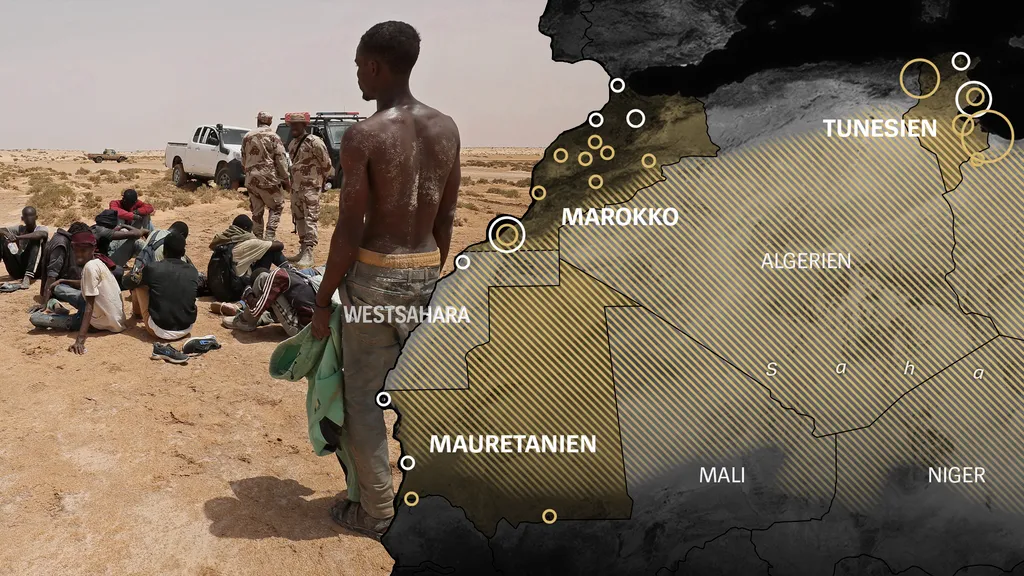
Brussels, June 22 (RHC)-- The European Union has admitted to what it called a "difficult situation" after a journalism consortium said Tunisia, Morocco and Mauritania were dumping migrants in the desert, using the EU's funds.
The wide-ranging investigation by Lighthouse Reports with outlets including Le Monde and The Washington Post paints the EU as complicit in a "system of mass displacement" and serious human rights violations.
"Europe supports, finances and is directly involved in clandestine operations in North African countries to dump tens of thousands of Black people in the desert or remote areas each year to prevent them from coming to the EU," the report said.
Such operations, it said, were "run thanks to money, vehicles, equipment, intelligence and security forces provided by the EU and European countries."
"This is a difficult situation. It's a fast-moving situation, and we will continue to work on it," European Commission spokesman Eric Mamer told reporters when questioned about the investigation.
The report said refugees and migrants in Morocco, Mauritania and Tunisia were being "apprehended based on the color of their skin, loaded onto buses and driven to the middle of nowhere, often arid desert areas," without water or food.
Others reportedly were taken to border areas where they were allegedly "sold by the authorities to human traffickers and gangs who torture them for ransom."
The 27-nation EU has struck deals with the three named countries with explicit financing to boost stopping irregular migration to Europe.
Brussels has given 150 million euros ($160 million) to Tunisia under a recent accord, with more promised. It has also allocated 210 million euros to Mauritania and 624 million euros to Morocco under the cooperation agreements.
The EU's efforts to have African countries stem migration flows across the Mediterranean Sea go hand in hand with a newly agreed overhaul of the bloc's asylum rules. These will make EU borders tighter and speed up the deportation of unsuccessful asylum seekers.
The Lighthouse Reports said it interviewed more than 50 Black migrants -- all of them from sub-Saharan Africa and West Africa -- who had been expelled from the three North African countries.
Their testimony, including videos and photos, "helped us to recognize the systematic and racially motivated nature of the practices," along with the consortium's own evidence gathering, it said.
The report cited unnamed European officials as denying that EU funds were being used to violate migrants' rights. But it said two EU sources acknowledged it was "impossible" to fully account for how the funding from Brussels was being used.
The European Commission -- the EU's executive arm -- did not respond explicitly to the report's allegations.
Commission spokeswoman, Ana Pisonero, said: "Sometimes the situation is challenging in our partner countries... (but they) remain sovereign states and they continue to be in control of their national forces."
She said the EU monitored programmes it provided funding for, and noted pledges from partner countries to uphold international law and human rights.
Tunisia has said that, in the first four months of this year, it intercepted 21,545 migrants on shore or at sea, preventing them from crossing the Mediterranean to Europe. That compared with 17,576 in the same period a year earlier.
Tunisian President Saied has vowed his country will not become "a country of transit or settlement" for migrants from other African countries.
In early May, the Tunisian Forum for Social and Economic Rights non-governmental organisation said authorities had expelled hundreds of sub-Saharan asylum-seekers, migrants and refugees from encampments in the capital Tunis.
In July last year, AFP journalists documented the plight of migrants in the desert on the Tunisia-Libya border. They had been abandoned there by Tunisian security forces, according to Libyan border guards and the migrants themselves.

